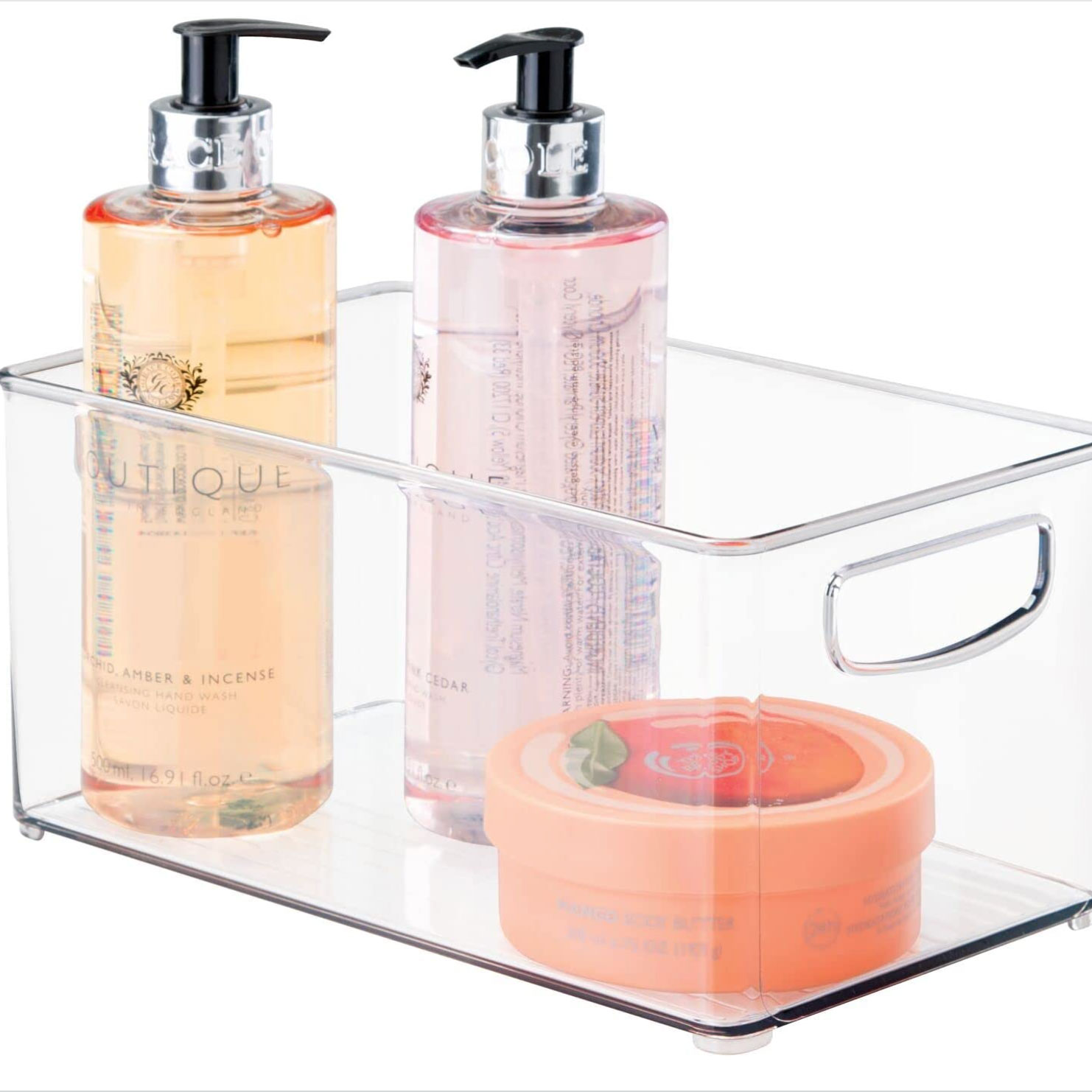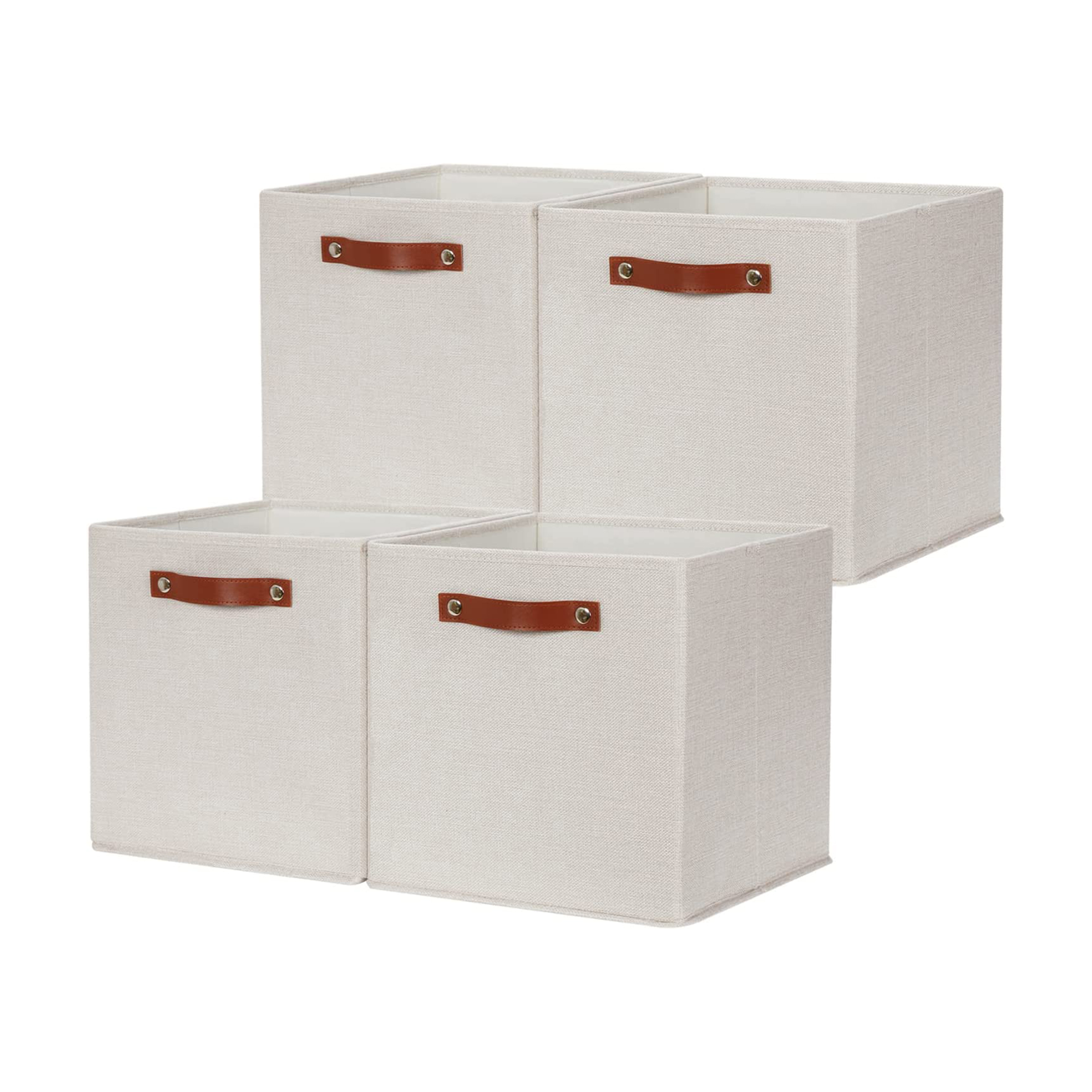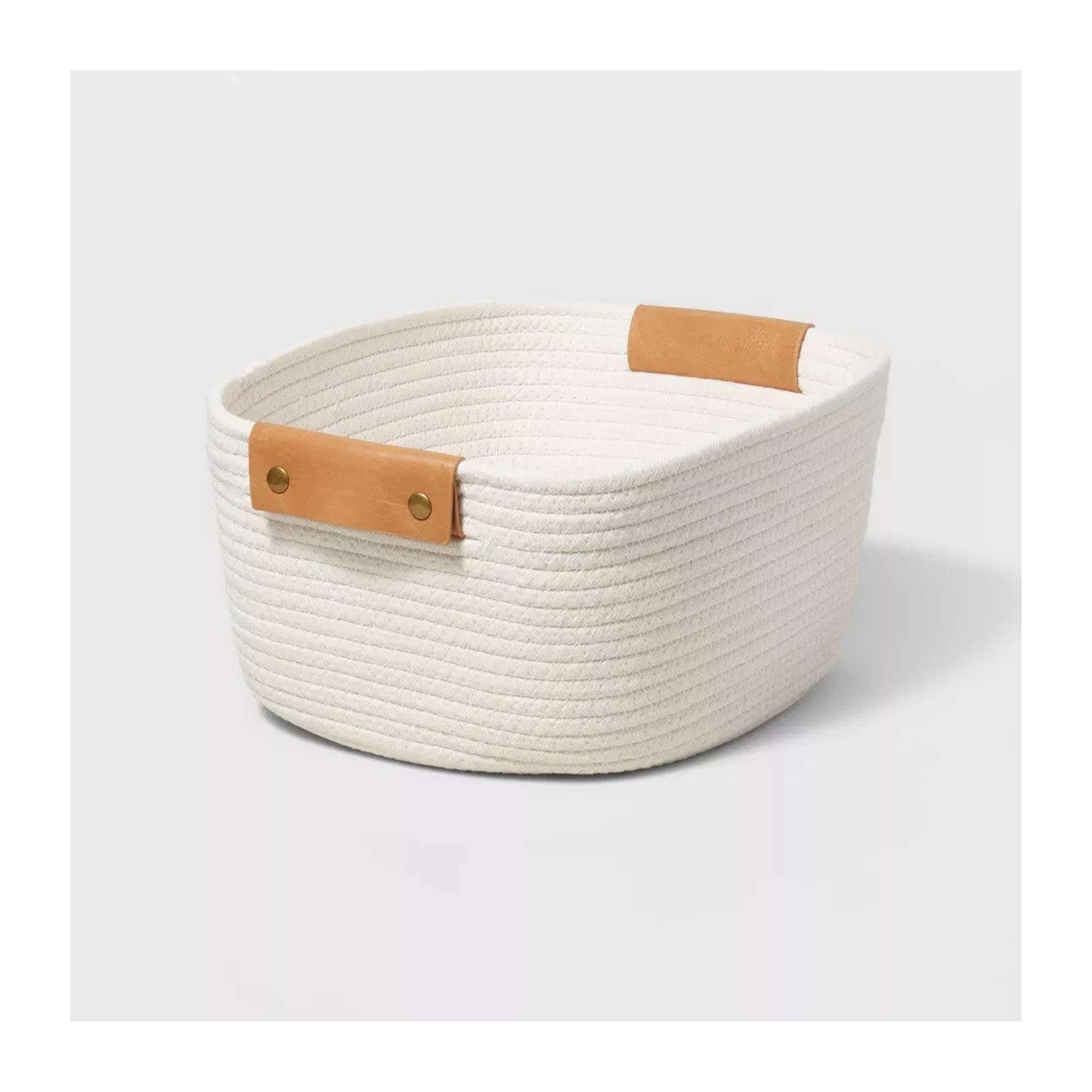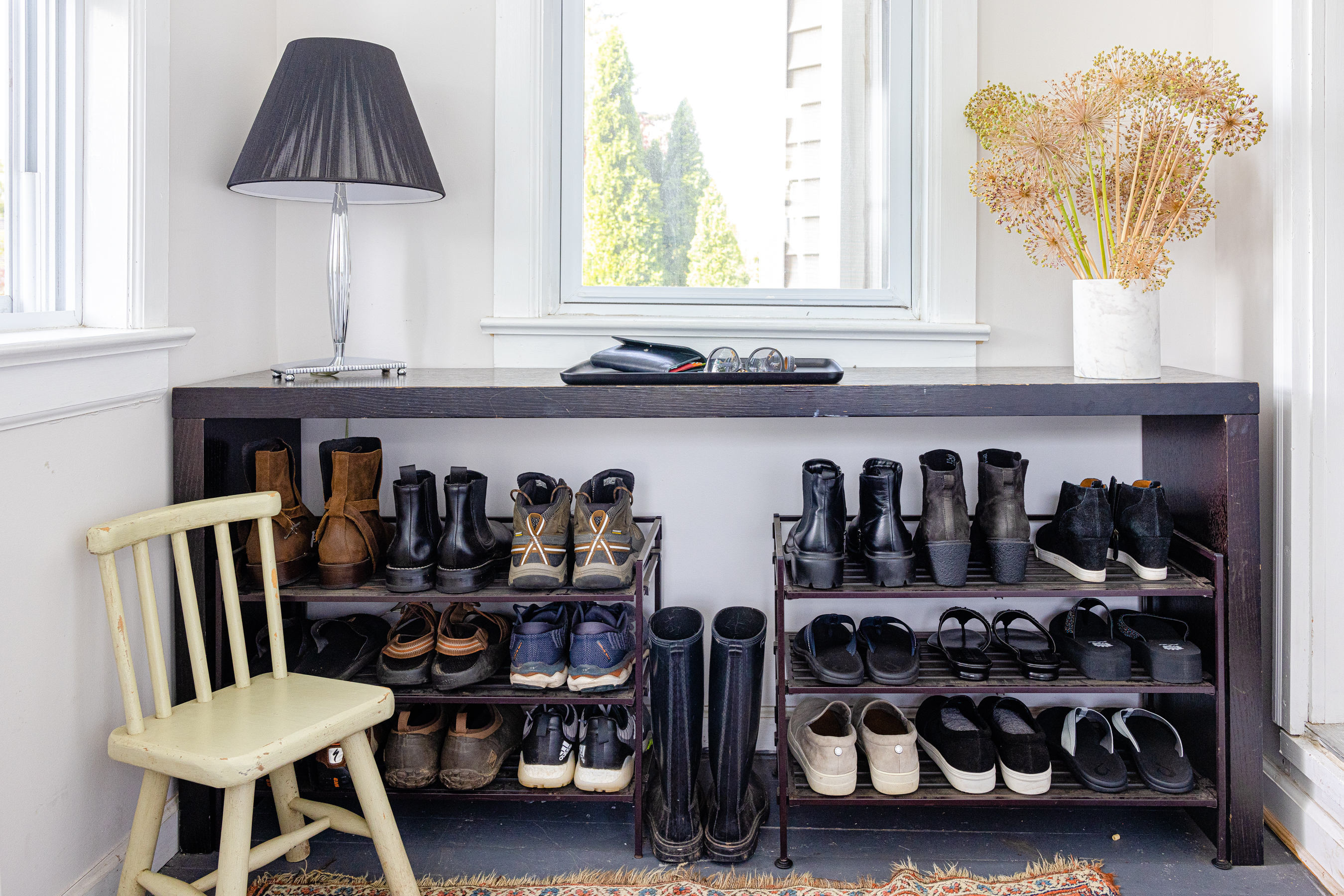

When square footage is at a premium, so is storage space. One of the biggest challenges for renters, small apartment-dwellers, and those who live in tiny homes is where to put it all. Unfortunately, it’s very easy to make mistakes when trying to organize everything from linens to food and cleaning products.
Are you ready to restore your home and create order? I spoke with several professional organizers to learn the small space organization mistakes that their clients make as well as the best ways to remedy them.
1. Not being realistic about the size of your home
It's important to recognize that smaller spaces simply have more limitations. A studio apartment simply has less storage than a three-bedroom house. “The biggest mistake we see is that people simply have too much stuff,” says Ann Lighfoot, co-founder of Done & Done Home. “You have to be realistic. It's not that your space is too small or that you need more bins. The solution is to live according to the amount of room you have available.”
So, while you might be tempted to buy those fabulous boots that finally went on sale, you may have to get rid of something else to make a spot for them.
2. Not taking advantage of vertical space
Struggling to find space for everything? Think vertically. “The backs of doors, behind a toilet, or even just the empty wall in your bedroom. If storage is an issue for you, get creative and imagine shelves or storage systems in places you may not have considered previously,” says Lightfoot.
There are many ways to implement vertical storage. “Great solutions for making the most of vertical space in a small space can be a tall bookcase for kids' toys, books, and games, a dining hutch for extra kitchen storage, or bunk beds in a kids room,” says Joanna Brumberger of An Edited Space. “Using all wall space by adding hooks like Command Hooks for extra hanging space and utilizing the backs of doors with over-the-door shoe and accessory organizers is a great way to add storage.”
3. Not decluttering regularly
Declutter regularly is a must in small spaces. “You don't have the luxury of letting things pile up or stashing items into closets if you're already cramped. If you do a little every day, you won't have to waste an entire weekend getting organized and it will ensure that your small space stays functional and efficient,” says Lightfoot.
If you have trouble doing this, consider scheduling monthly decluttering sessions in each room. For example, decluttering your kitchen on the first Sunday of every month and your bathroom on the second Sunday. Grab a fresh garbage bag, set a timer for 20 minutes, and go.
4. Not being creative with storage
“Think about the items that you actually want to display in your space. Do they bring you joy? Are they useful? You don't have to have everything out all at once, but you get to pick and choose what you do want to have easily accessible and out in the space. And, then you have to get creative about storage,” says Leslie Kilgour, professional organizer and founder of Get It Straight.
While it’s ideal to store things where you use them, that isn’t always possible in smaller spaces. “Maybe you store sheets and towels under the bed, or maybe you have your sheets and towels organized in the coat closet—and that's totally okay! If you know where it is and you can find it, it's organized and works for you.”
5. Buying products before measuring
While it’s tempting to buy lots of clear organizers, Lazy Susans, and wicker baskets, Brumberger recommends measuring the spaces you’re planning to organize before you click “add to cart” or go to the store. “In a small space, organizing products such as bins, baskets, or drawer dividers need to fit perfectly, which is why it is critical to measure before buying,” she says. “There are so many products out there to choose from and it can be overwhelming to try and figure out what to buy. Measuring should always be the first step, especially when your dimensions are tight.”
6. Going overboard with organizing products
Along the same lines, it’s really easy to buy lots of organizing products. However, Kilgour warns against falling into this trap. “Don't overbuy! Before you invest in new bins and baskets, assess a few things first: do you even have room for these new bins and baskets? And, what will you put in these storage spaces? Remember, when you are working with a small space, you're going to organize differently than you would a larger space, and there is nothing wrong with that, you just have to keep it in mind.”
7. Over-buying in bulk
Buying in bulk is a great way to save money, but it's not always feasible for those who lack storage space. “When you live in a small space, you have to make hard decisions about what you can and cannot buy in bulk. I have many clients who live in New York City, with a NYC-sized kitchen, but they buy in bulk as if they have a suburban pantry,” says Brumberger.
The trick is to be selective. For example, while you will end up using that giant case of toilet paper at some point, it’s probably not as wise a purchase as that 6-pack of mayonnaise.
An easy solution to this problem is to consider what’s available for next-day delivery so you aren’t stuck when you run out. “I try to help my clients realize the logistics of this so they don't have more backstock than they can handle,” explains the professional organizer.
Alternatively, many websites have “subscribe and save” services where you can have items shipped regularly for a nominal discount.
Join our newsletter
Get small space home decor ideas, celeb inspiration, DIY tips and more, straight to your inbox!

Hi, I’m Amanda Lauren. I’m a design expert and interior stylist who writes for Real Homes, Forbes, Real Simple among other publications. I live in Los Angeles in the historic neighborhood of Hancock Park with my husband, and two dogs, Lulu and Milo. We also have a baby coming in spring 2023. I’m a big believer in finding beautiful things at all price points. There are so many places to find affordable things, you just have to look for them. If you don't find it at first, look harder!
-
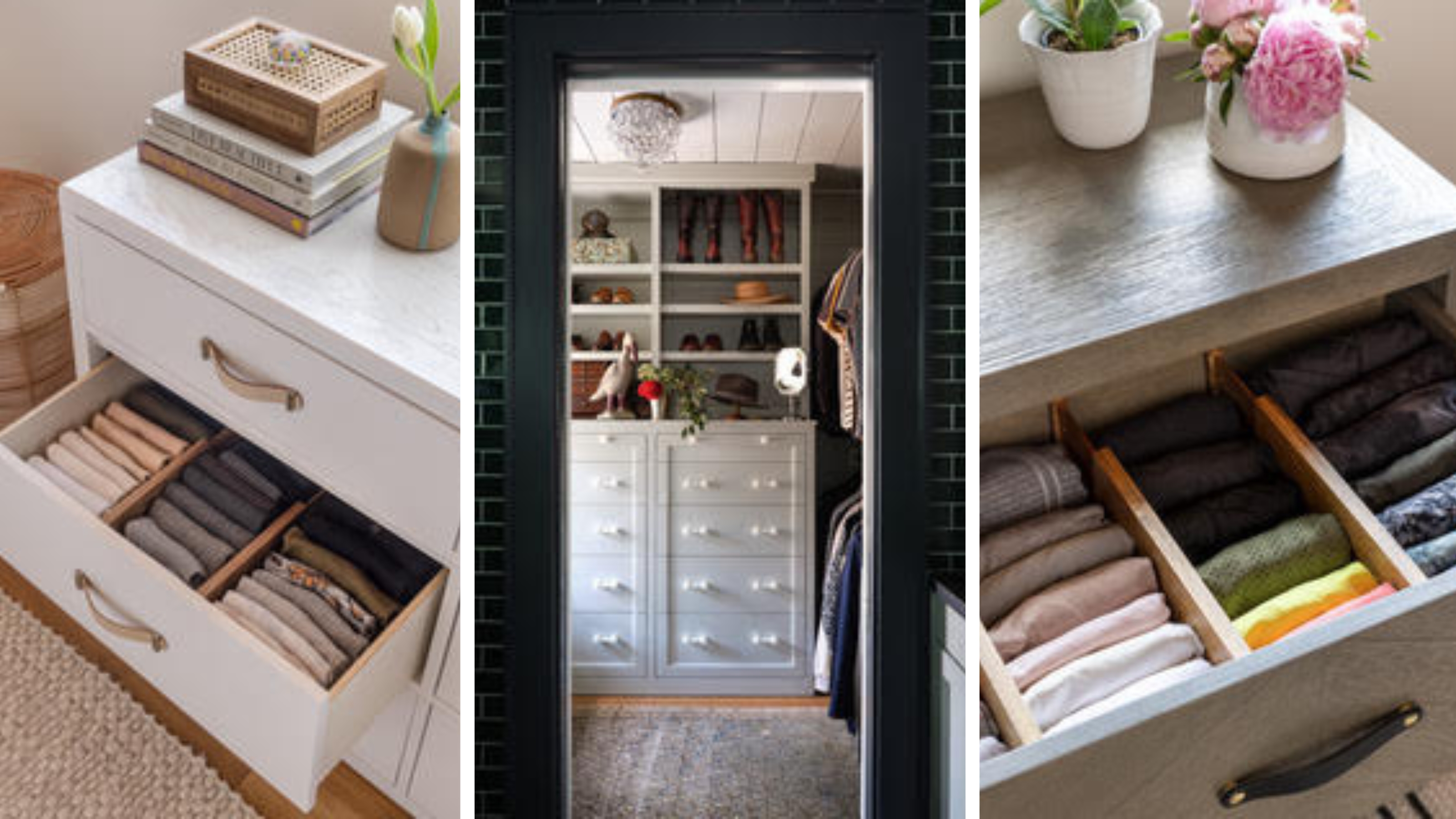 How to organize a dresser — 10 ways to get your drawers in order
How to organize a dresser — 10 ways to get your drawers in orderSay goodbye to overflowing drawers by learning how to organize a dresser so it's neat, tidy and well-ordered. Here's how to do it, according to the pros
By Tara King Published
-
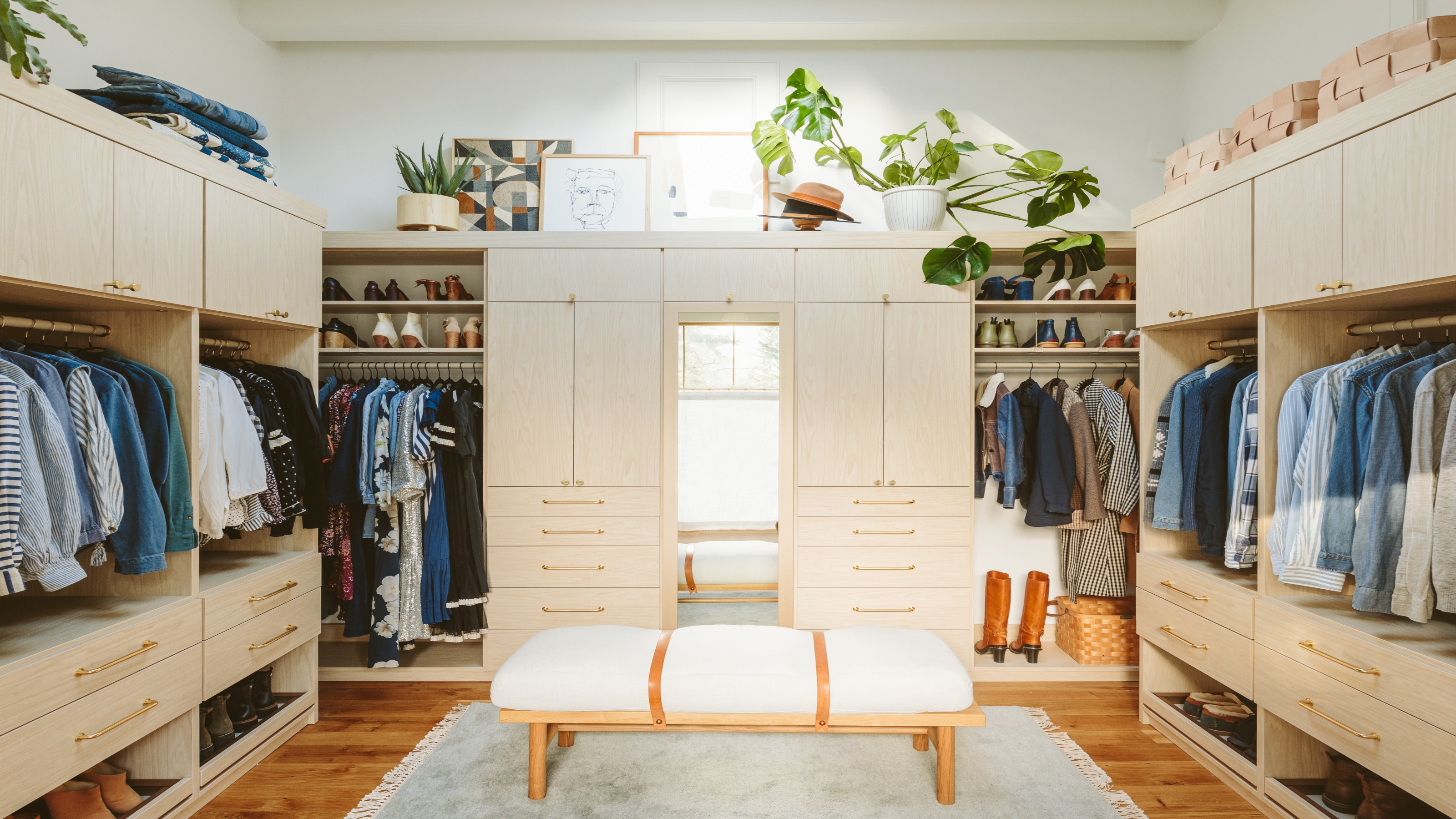 How to organize a walk-in closet — 15 ways to showcase your style
How to organize a walk-in closet — 15 ways to showcase your styleOur pros reveal how to organize a walk-in closet for a neat and tidy display of clothes, shoes, and accessories. Experts share their top organization tips
By Tara King Published
-
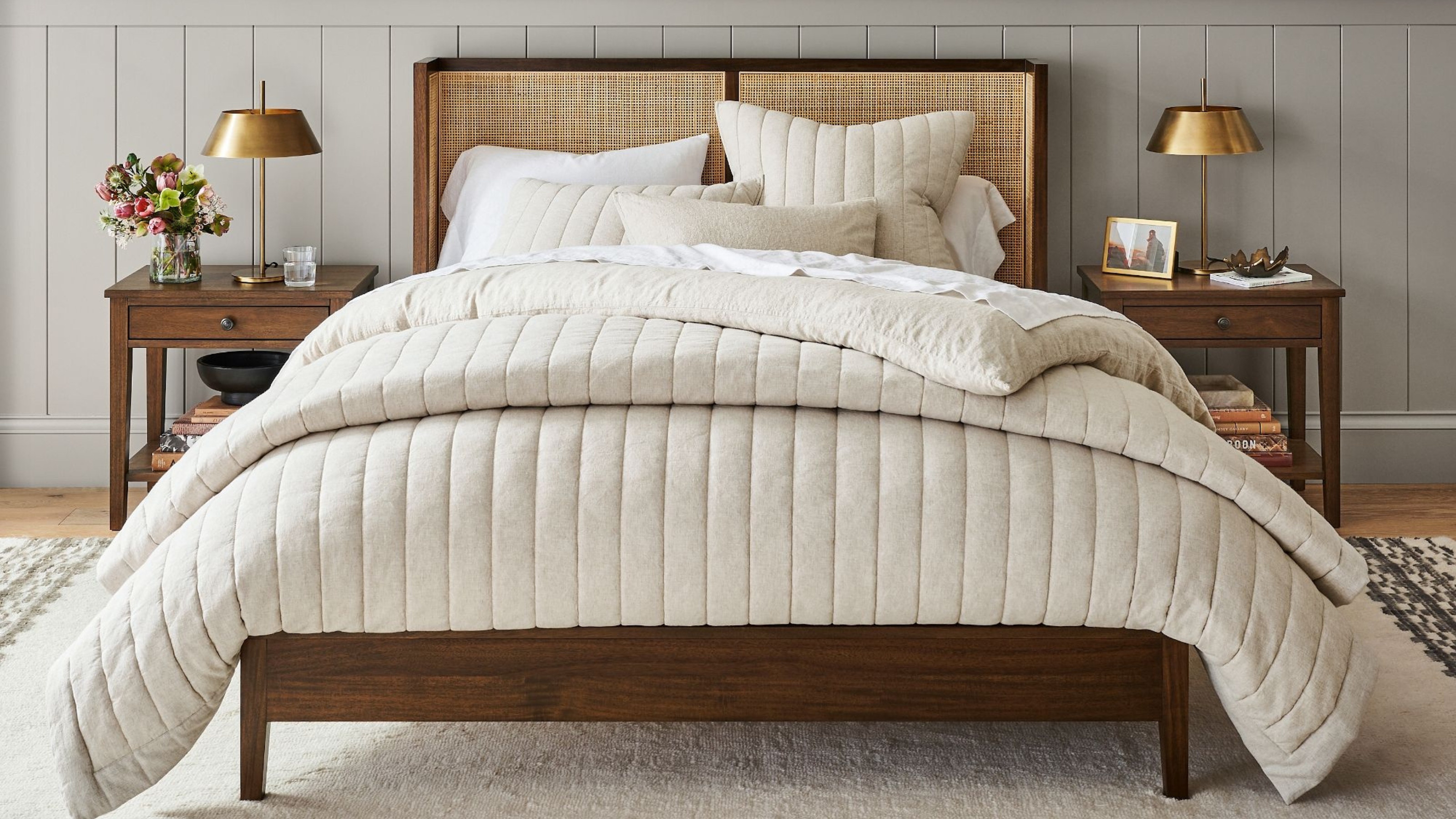 10 comforter storage ideas — expert ways to stash
10 comforter storage ideas — expert ways to stashDiscover comforter storage ideas approved by experts. See the best ways to stash this bulky item around the house so it's out of sight, out of mind
By Sarah Warwick Published
-
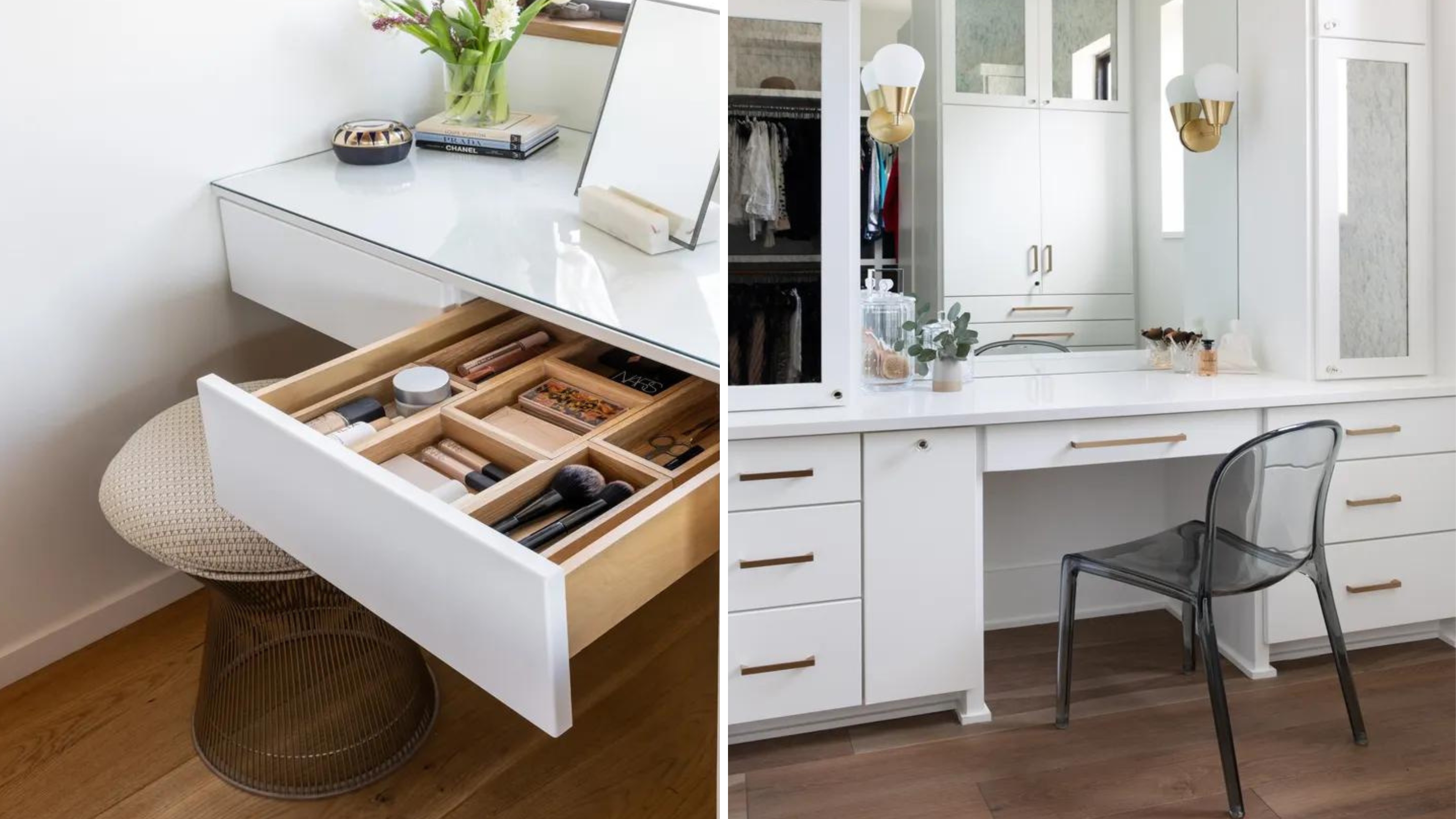 How to organize a vanity — 10 ways to tidy
How to organize a vanity — 10 ways to tidyLearn how to organize a vanity in the same way you would your beauty routine — think simple, neat, and easy to maintain. Here's how the pros do it
By Tara King Published
-
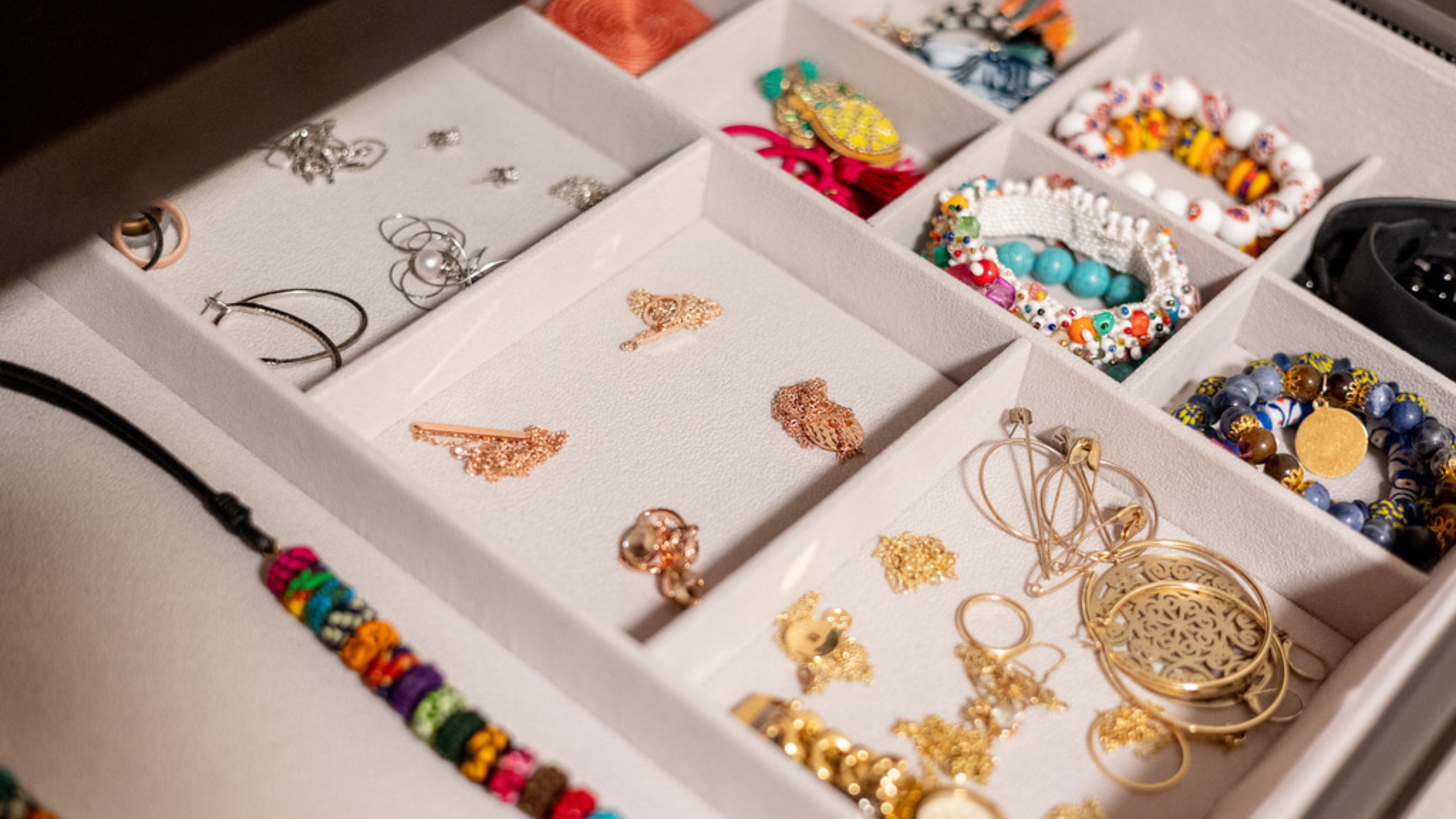 How to organize jewelry like the experts — say goodbye to tarnished rings and tangled necklaces
How to organize jewelry like the experts — say goodbye to tarnished rings and tangled necklacesLearn how to organize jewelry to avoid tarnishes, tangles, and increase longevity. Our pro organizers and fine jewelry experts share their best industry tips
By Punteha van Terheyden Published
-
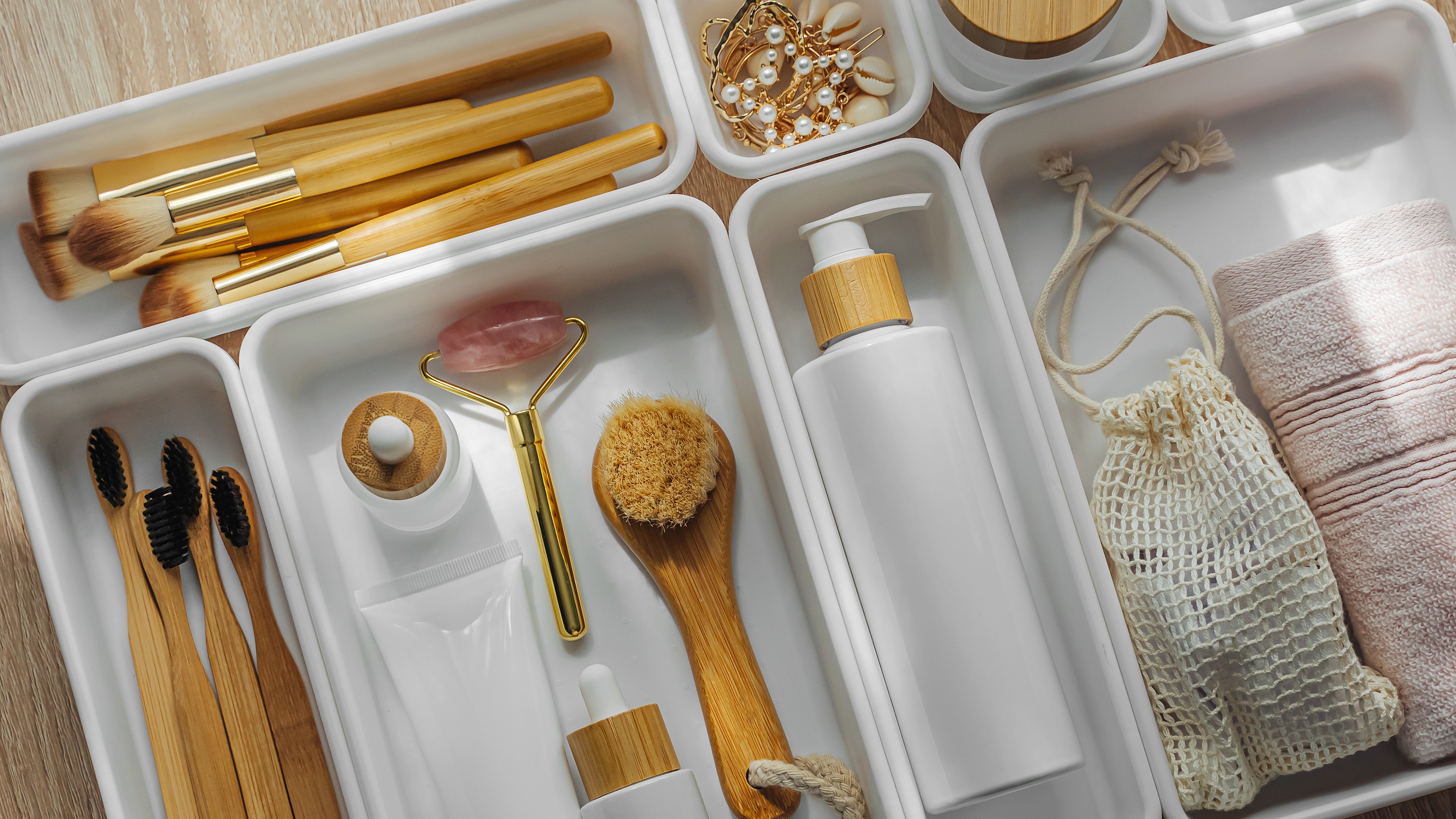 How to organize bathroom drawers — 4 easy steps to streamlined storage
How to organize bathroom drawers — 4 easy steps to streamlined storageLearning how to organize bathroom drawers will give you big return on function. Our experts swear by these tips for ordered bathroom drawers
By Beth Mahoney Published
-
 Zooey Deschanel's pantry is an organizer's dream — here's how to recreate the look
Zooey Deschanel's pantry is an organizer's dream — here's how to recreate the lookZooey Deschanel's pantry is an organizer's dream. We break down how to recreate the look to organize your snacks, cooking ingredients, and more
By Emily Lambe Published
-
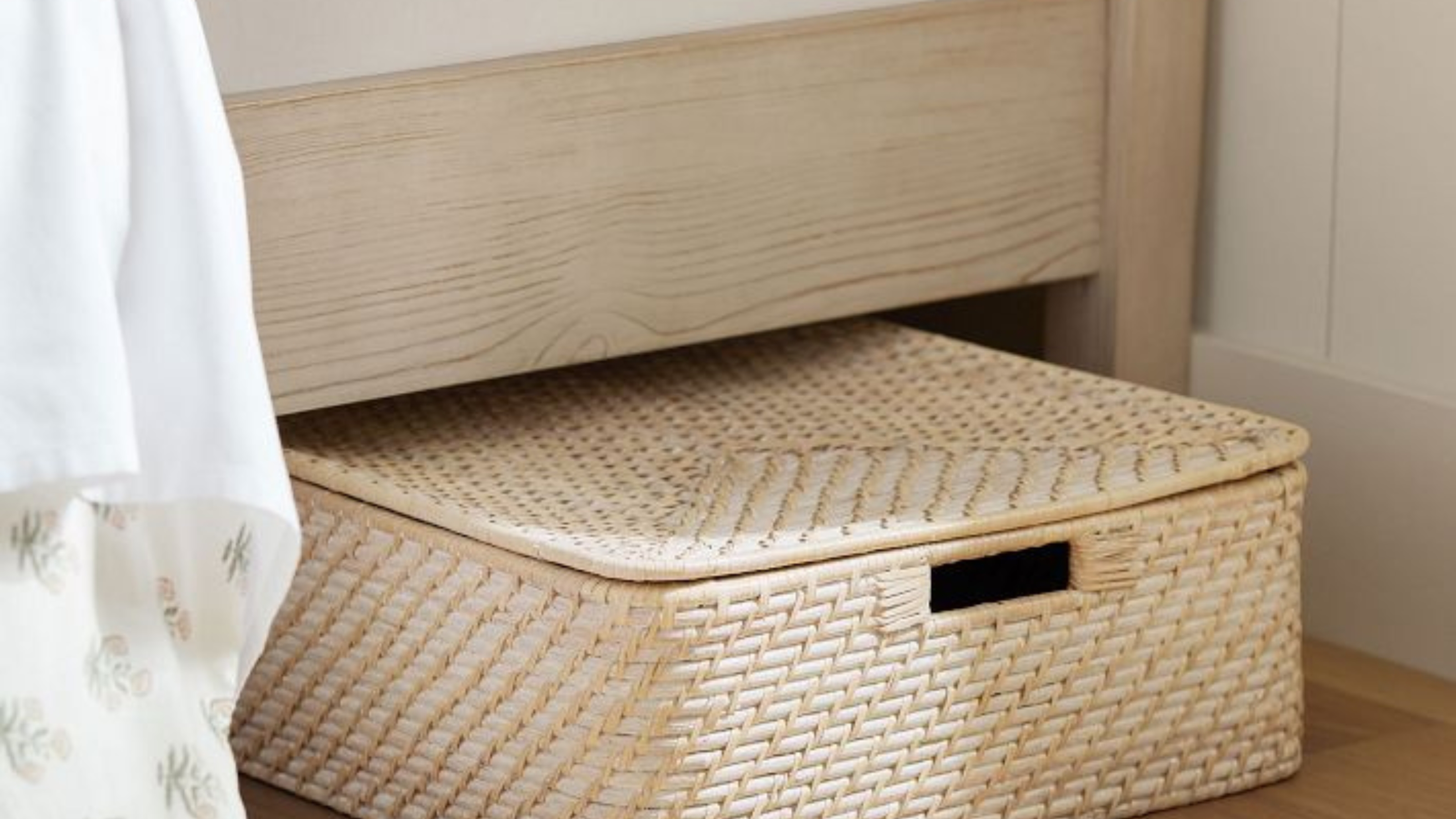 How to organize under the bed — put that dead space to use
How to organize under the bed — put that dead space to useWondering how to organize under the bed and make the most of the wasted space? We’ve spoken to a panel of experts who’ve shared their best tips for utilizing this compact area.
By Beth Mahoney Published
